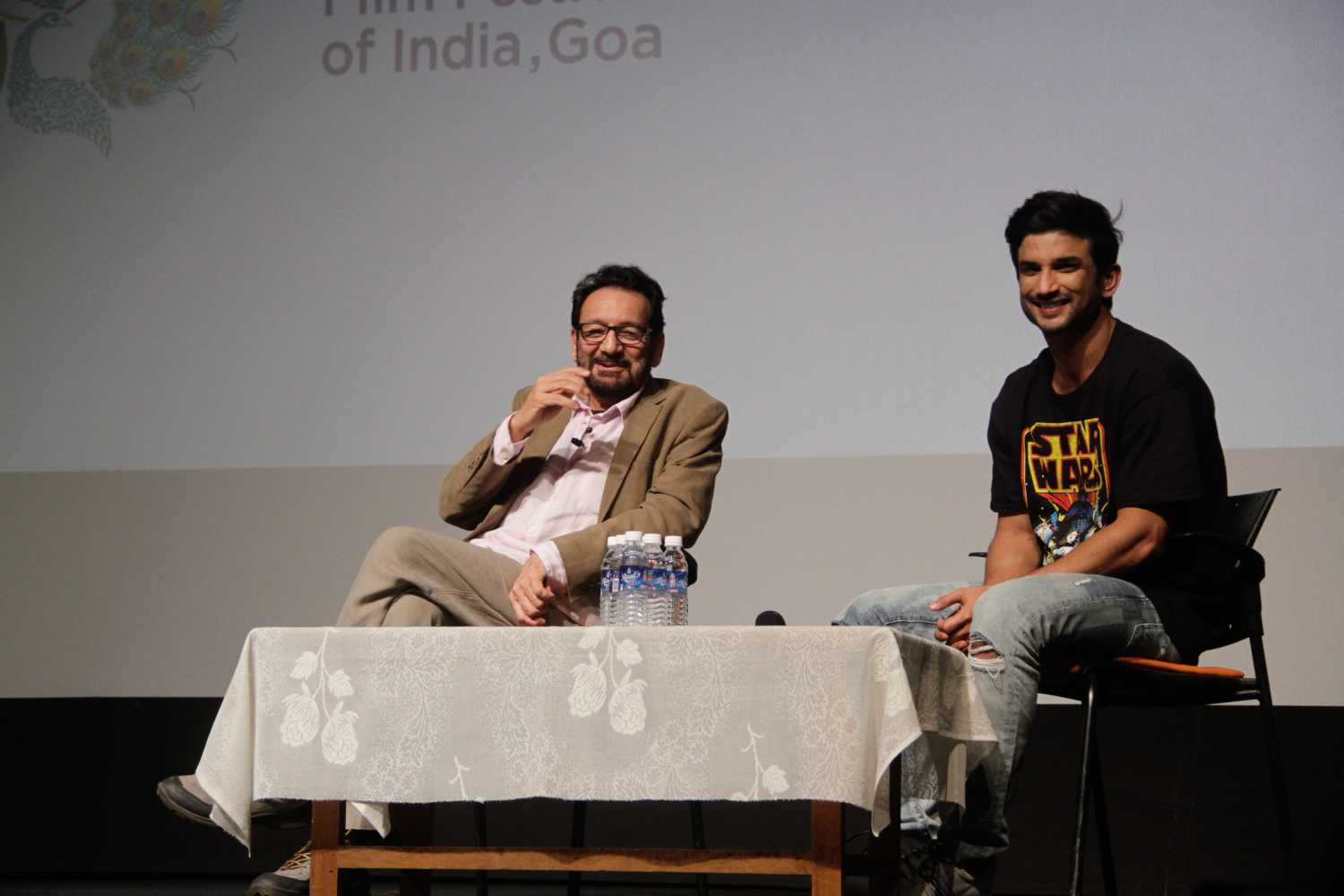The director, who was supposed to make his comeback with the film Paani, said there is no creativity without madness.
IFFI 2017: Desperately want to make another film in India, says Shekhar Kapur
Panaji - 27 Nov 2017 6:00 IST


Blessy Chettiar
Bandit Queen (1994) director Shekhar Kapur conducted a masterclass at the 48th International Film Festival of India (IFFI) in Panaji, Goa. He was accompanied by his Paani actor Sushant Singh Rajput who set the tone for the conversation, at the Kala Academy. Kapur spoke on ‘disruptive filmmaking’ to an auditorium full of film enthusiasts.
The 71-year-old filmmaker spoke about creative moments coming in flashes, and said one cannot prepare for them. “I usually don’t know how to make a film," he said. "There is no right or wrong in creativity. In the moment of panic, something will emerge. There is only one thing — honesty. We promise to be honest to the moment. The director, writer, actors, technicians, everybody tries to be honest and we hope that these honesties will come together to create a deep atom of honesty in the film. To fail and to be wrong is acceptable.”
He said he lacked the naivete to return to Indian cinema. “How do I get back the naivety? How do I get back the time when I didn’t know anything? How do I bring back the madness? There is no creativity without madness. Creativity is disruptive. I need to go back to the naive times when I did Masoom (1983). You can’t go from peak to peak, you have to fall,” he said.
Kapur’s answers were peppered with wit, clarity and headline-worthy moments. Speaking about the business of filmmaking, he said, “Whenever directors have become more important, you will notice films have become better. Whenever stars have become more important, the quality of films falls and they don’t last very long. When you take a star it’s the business that takes over. For me, as a director, I have to think about getting my money. But the moment I think of it as a business first, I’m going to make a very bad film. I have to think and fight for what I believe in.”
He spoke of filmmaking as a madness that one needs to be engulfed in to stay true to the vision. Giving tips to writers and filmmakers, he said, “For me, a story of an individual is important if it tells the larger truth of society at this moment. I was making a film on Nelson Mandela, which I refused to do later because it didn’t tell the larger story. I made the film on Bandit Queen Phoolan Devi because it told a larger story of oppression, humiliation and rape of lower-caste women in India. So, I edited and released it.
"If people are asking me to make Phoolan Devi 2, I ask them: what is the larger story? What is the fundamental story about? Why is society interested in this? How does it affect our lives? What is the relevance to our life today?”
Rajput questioned Kapur about how he treated his scripts. Kapur spoke about the script being a template and at each stage you leap forward. “A film is written, then shot, then edited, then there’s music. At each stage that you work is an evolution of the film. At each stage you have to leap forward. And that is what I do. That’s why I like scripts that have spaces in between so I can fill them with my imagination. The greatest films ever are those that have spaces in between. Even directing is a constant rebellion.”
Touching on the topic of censorship, Kapur defended filmmaker Sanjay Leela Bhansali, who is caught in a storm ahead of the release of his historical drama, Padmavati. “I know the filmmaker, I know the film and you know the film," he said. "The intention of the filmmaker was not to create controversy. He is a great filmmaker, but he has never been a political filmmaker.... The politics is around the film, not in the film.”
Related topics
IFFI



